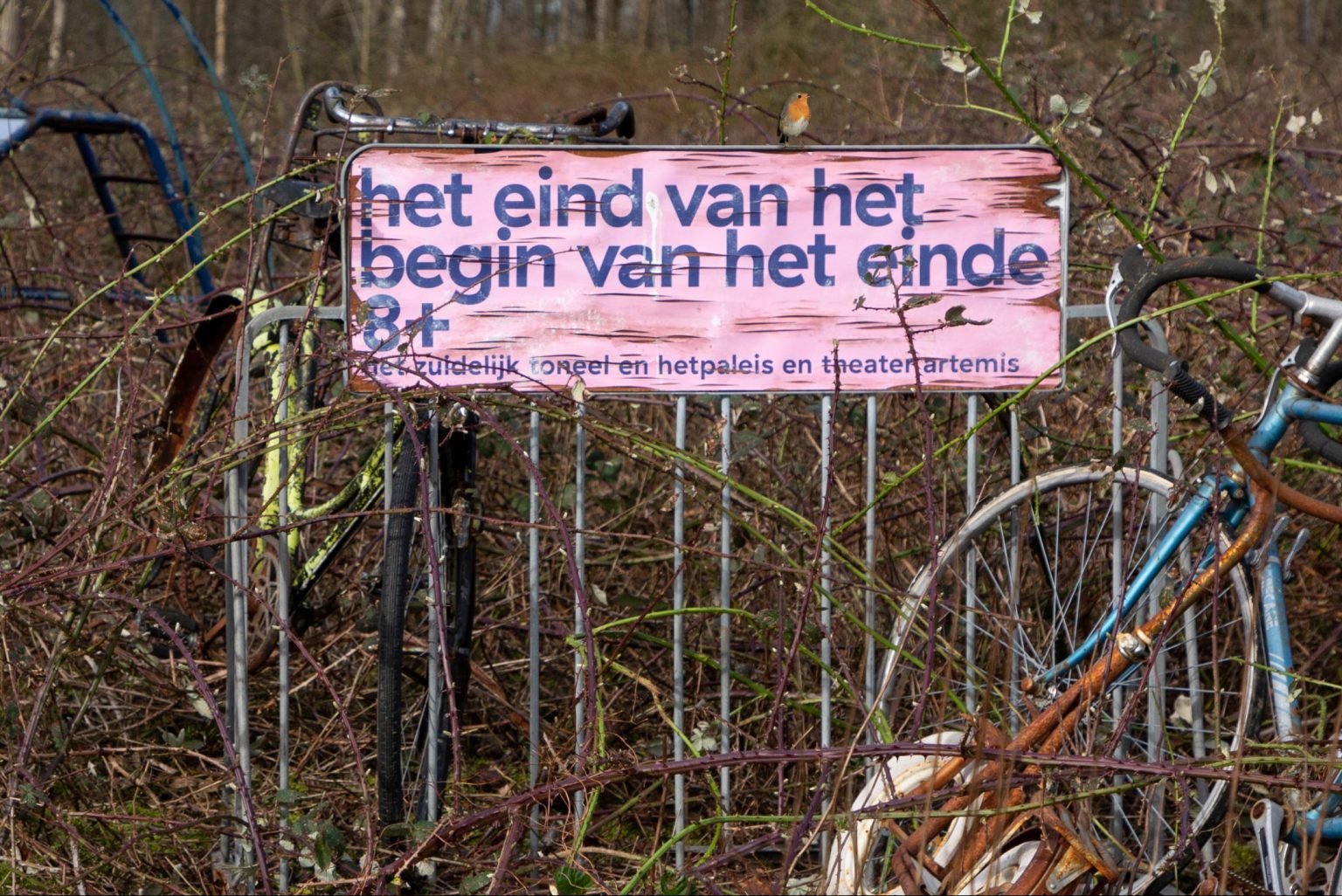THE END OF THE BEGINNING OF THE END 8+

A PERFORMANCE IN REVERSE
There is supposed to be a performance, under a thick blanket of snow. At least, that’s what they said when we bought the tickets at the box office. Suddenly snowflakes start to flutter up and something appears that looks like an empty stage. Is this the beginning? Or is this the ending? Hello…?
This show for the whole family, eight years old and up, starts where other shows usually end: the actors go home and all their things are loaded into the lorry – ready to drive on to the next theatre. But what if in the meantime there aren’t any theatres any longer? The End of the Beginning of the End is a show that still desperately tries to present something. Perhaps the very last story can still be saved, or is there another way to be found? Who will help them?
Enter the world of award-winning director Jetse Batelaan. As original as he is funny, he stretches the limits of fantasy and fails to live up to the expectations on purpose.
“Batelaan managed to put on a large-scale production in the middle of the Coronavirus crisis which also urgently reflects on the period that there was no theatre at all for months.”
“It’s not just an aesthetic, but also an enormous political statement.”
“It’s very rarely that you can say this of a show, but this is perfect.”
The haunted house of the future is the show to end all shows
In The end of the beginning of the end, director Jetse Batelaan paints a picture of a future without imagination, and does it in such a radical, astounding way that it leaves you breathless. That was it: the very last show in the children’s theatre hetpaleis in Antwerp. We watch as the last remaining technician turns the lights off – the show is over, the stage is broken down. Or is it…? From that point on, time moves in reverse: the players start rebuilding the stage while walking and moving backwards. And they keep it up, for fully an hour and a half: a wad of paper jumps out of a trash can, someone spits coffee into their cup.
Theatre technicians appear surprisingly often in Jetse Batelaan’s work, which is in line with his theatre philosophy: it’s not the drama on the stage that interests him, but the surrounding conditions that allow for the drama to occur, including more abstract elements like time, space, consciousness, the physical presence of an audience – how topical – and, of course, belief and imagination. The exercise Batelaan performs with the children – he talks to them through enormous signs that float across the stage – is to get them to see that which isn’t there but could be. This exercise turns out to be essential when a developer comes to view the room with some clients. While one dimension of time flows backwards uninterruptedly, we simultaneously jump forward to a not-too-distant future where theatre itself no longer exists.
The story of now, then and soon swings brilliantly together and flows out into a devastating dystopian image, where the theatre has turned into a haunted house, with the last survivors of the imagination as its wandering souls. As the imagination disappears, so does humanity, with nature creeping through the holes in the roof of the theatre finding its way through what once was a civilization. It’s not just an aesthetic, but also an enormous political statement: the death of the imagination as the harbinger of the death of mankind. This all wrapped inside an amazing theatrical experience. Batelaan outdoes himself in ambition and radicality. And in imagination, of course.
Evelyn Coussens, De Morgen © 9 oktober 2020
Gina Beuk
Elias De Bruyne
Goele Derick
Joep van der Geest
Julia Ghysels
Lucas van der Vegt
Willemijn Zevenhuijzen
Gerjan Piksen
Koen Haagdorens
Els De Bodt
Piet Menu
Theater Artemis
Het Zuidelijk Toneel
hetpaleis